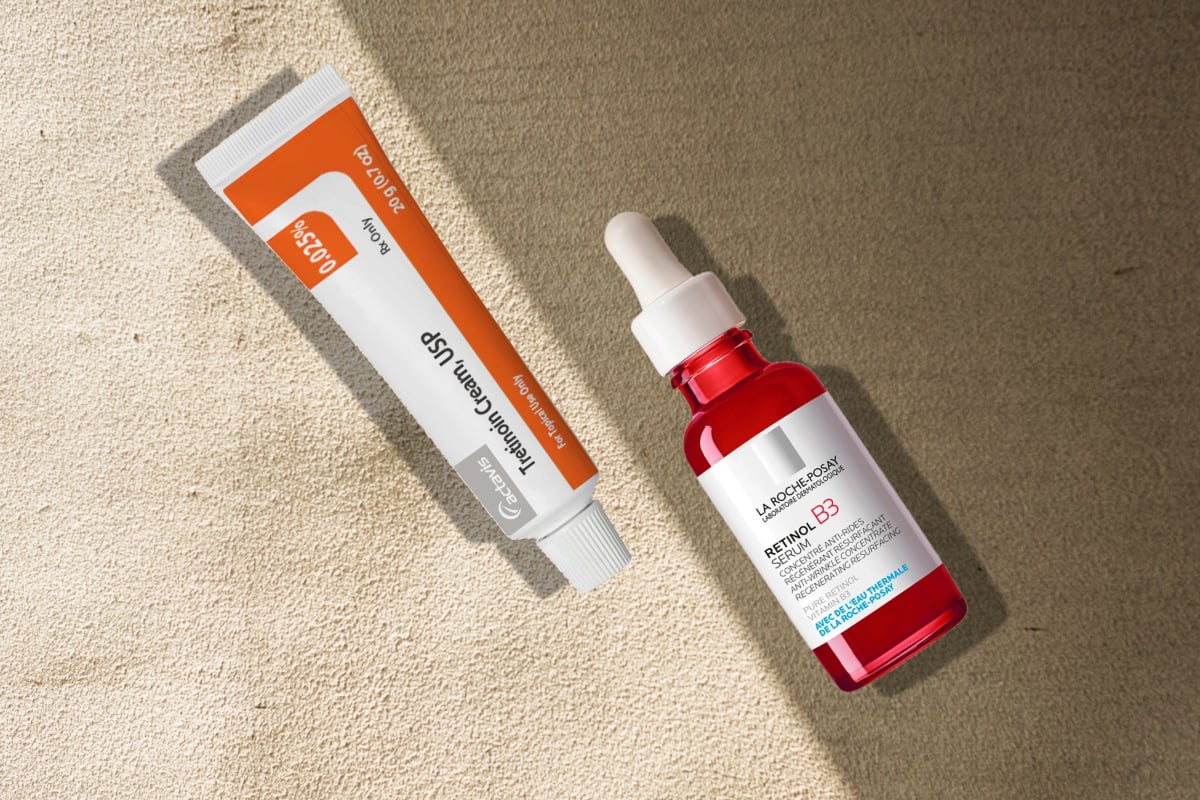To truly appreciate the significance of amino acids for your skin’s health, let’s talk about what would happen if your skin had no amino acids at all. If all the amino acids in the skin were to disappear overnight, it would be like removing the foundation of a building.
Your skin heavily depends on amino acids. These are essential building blocks. Without them, the very structure of your skin could weaken. For instance, collagen and elastin—two vital proteins for skin health—rely on amino acids. They ensure our skin remains elastic and firm. A lack of amino acids means our skin can’t hold onto moisture as well or maintain a balanced pH level. This imbalance can lead to dryness and increased inflammation. Moreover, amino acids bolster our skin’s defenses against harmful bacteria and the damaging effects of UV radiation. In short, nothing about your skin will function properly without amino acids.
Let’s talk about the benefits of supplementing your body with amino acids through your skincare routine and diet and why you should be doing it.
- What are amino acids?
- Which amino acids are considered essential and non-essential?
- What are the benefits of amino acids for your skin health?
- What are the side effects of amino acids?
- How to use amino acids
- When do you know you need to give your body more amino acids?
- The best skincare products with amino acids
- Frequently asked questions
What are amino acids?
Amino acids are the building blocks of proteins such as collagen, elastin, and keratin. When amino acids join together through chemical bonds, they create peptides. Connect more peptides, and you’ve got proteins. Every cell in your body has amino acids. They support everything from digesting food to fixing damaged cells. Plus, amino acids are also found in our skin’s surface layer, working to hydrate and protect the skin.
You’ll see amino acids being called either essential or non-essential. Essential amino acids are those your body cannot synthesize, so it’s essential (you see the connection?) to obtain them from your diet. Non-essential amino acids, on the other hand, can be produced by the body through various metabolic processes. Although they’re called non-essential, they are still very important for your overall health.
Which amino acids are considered essential and non-essential?
Although hundreds of amino acids are found in nature, your body needs only about 20 of them to make proteins.[1] These include:
- Alanine
- Arginine
- Asparagine
- Aspartic Acid
- Cysteine
- Glutamic acid
- Glutamine
- Glycine
- Isoleucine
- Leucine
- Lysine
- Methionine
- Phenylalanine
- Proline
- Serine
- Threonine
- Tryptophan
- Tyrosine
- Valine
- Selenocysteine
- Pyrrolysine
- Histidine
Of all amino acids, only nine are essential:
- Phenylalanine
- Valine
- Tryptophan
- Threonine
- Isoleucine
- Methionine
- Histidine
- Leucine
- Lysine
FYI, there are times in life, like during pregnancy, adolescence, or recovery from physical trauma, when your body may struggle to produce enough non-essential amino acids, such as arginine and histidine. In these conditions, their supplementation is essential.[2]
What are the benefits of amino acids for your skin health?
Certain essential amino acids, such as arginine, lysine, and proline, are particularly beneficial for the skin, and you’ll often find them in skincare products. They’re involved in numerous cellular functions and processes.
On the whole, amino acids are required to repair skin damage, sustain the skin’s ability to retain moisture, protect against sun damage, and maintain a healthy balance of bacteria on your skin.[3]
Below we take a closer look at how amino acids can benefit your skin:
- Repair damaged skin: Your body needs amino acids to repair tissues and restore the skin structure. One key factor in the healing process is collagen synthesis, which only occurs in the presence of amino acids like arginine and proline
- Increase hydration: Hydration is an essential aspect of skincare, and amino acids balance moisture levels by transporting water through the skin and ensuring that it does not evaporate. Amino acids are naturally found in the top layers of the skin and form the natural moisturizing factor (NMF), a complex of molecules that maintain skin hydration. More precisely, amino acids serine, alanine, and glycine make up about 40% of the natural moisturizing factor.[4]
- Strengthen the antioxidant defense: Some amino acids work as antioxidants, and others reconsolidate the body’s natural antioxidant defense system. Antioxidative amino acids include tryptophan, methionine, histidine, lysine, cysteine, arginine, and tyrosine, and they provide enhanced protection against oxidative stress and free radicals.[5]
- Promote collagen and elastin production: Amino acids are the building blocks of collagen and elastin, so they support the regeneration and production of these skin-firming proteins. In other words, amino acids can help your skin maintain its firmness and elasticity and smooth out fine lines—one of the reasons they’re often included in anti-aging products.
- Restore the skin barrier: Amino acids are naturally present in the stratum corneum, which acts as a protective barrier. This barrier blocks bacteria and other external irritants from entering your skin and also has a key role in holding water into the stratum layers of the skin. As integral components of the skin’s natural barrier, amino acids aid work to restore its function and fortify its defense.
What are the side effects of amino acids?
Amino acids are skin-identical ingredients with no major adverse effects when applied topically. Amino acids-based products are generally safe for all skin types, including dry, acne-prone, and sensitive, and even suitable for conditions like rosacea and eczema. However, it’s wise to do a patch test when adding a new product to your routine because everyone’s skin is different, and you might react to other ingredients in the formula.
In the context of oral supplementation, research shows that a high intake of amino acids above the recommended limit can lead to adverse effects such as muscle cramps, dehydration, vomiting, and liver dysfunction.[6]
How to use amino acids
You can enjoy the benefits of amino acids by taking them from foods, supplements or using amino acid-infused topical products. You find amino acids in protein-rich foods, such as meat, fish, eggs, cottage cheese, and mushrooms, or quinoa, soybeans, lentils, and nuts, in case you’re vegan.
For topical use, the best amino acids in skincare are arginine, lysine, histidine, glycine, and leucine. You typically find them in moisturizers, serums, and eye creams that target anti-aging and skin repair.
When do you know you need to give your body more amino acids?
There are a few signs that your body will give you when it craves a boost of amino acids. For example, if you notice that your wounds take forever to heal or if they don’t heal properly, it could mean that you’re running low on amino acids. Amino acids are also important for your muscles. So, if you’re feeling weak and noticing muscle loss or fatigue, it might be a good idea to get some extra amino acids in your system. And hey, if your hair and nails are acting up—brittle nails, hair breakage, or slow growth—it could be a sign that you need more of these building blocks.
Moreover, if your skin doesn’t retain moisture and it’s often dry despite using moisturizer, it could benefit from some extra amino acids. One study actually shows that the content of free amino acids in the stratum corneum of people with dry skin is much lower than in normal skin.[7]
The best skincare products with amino acids
Here are some of the best amino acids skincare products we recommend:
- Peter Thomas Roth Peptide 21 Amino Acid Exfoliating Peel Pads
- The Ordinary Amino Acids + B5
- Acure Resurfacing Amino Acid Serum
- Pacifica Amino Acid 10% Complex
- Paula’s Choice Peptide Booster
- Cos De Baha Peptide Facial Serum
Frequently asked questions
- Do amino acids reduce wrinkles and fine lines?
Yes, amino acids can help reduce aging signs. They support collagen production, which is essential for keeping the skin smooth and reducing the appearance of wrinkles. Additionally, amino acids help hydrate the skin and improve its overall texture, which in turn plumps fine lines.
- Can amino acids brighten dark spots?
Certain amino acids, such as tyrosine and glutathione, are involved in the production and regulation of melanin, the pigment responsible for skin color. They might brighten dark spots, but not as much as other treatments like vitamin C.
- Are amino acids safe for eczema and rosacea?
It’s perfectly fine to use amino acids on eczema and rosacea. Amino acids play a crucial role in supporting the skin barrier function and promoting hydration, which is essential for managing these conditions.
- What are the best natural sources of amino acids?
The richest natural sources of amino acids are animal-based proteins like meats, fish, and eggs and dairy products like milk and yogurt. And yes, eating amino acid-rich foods can improve your skin condition.
- Can amino acids reduce inflammation and soothe skin?
Some amino acids are anti-inflammatory and help soothe the skin when applied topically. Also, antioxidative amino acids reduce oxidative stress, which is a process that damages cells and causes inflammation.
- Can amino acids help in fading scars?
Amino acids may have some potential to fade scars by providing the necessary building blocks for collagen synthesis, which support the skin’s natural healing processes and improve the appearance of scars over time.
- What causes amino acid deficiency?
UV damage, stress, poor diet, sudden temperature changes, and conditions like atopic dermatitis can reduce the moisture in the skin and, consequently, the number of amino acids. Amino acid deficiency can lead to nutritional deficiencies, fatigue, and even accelerated skin aging.
Sources
- Lopez MJ, Mohiuddin SS. Biochemistry, Essential Amino Acids.
- De Koning TJ. Amino acid synthesis deficiencies. Handb Clin Neurol. 2013. PMID: 23622400.
- Solano F. Metabolism and Functions of Amino Acids in the Skin. Adv Exp Med Biol. 2020.
- Tsukui K, Kakiuchi T, Suzuki M, Sakurai H, Tokudome Y. The ion balance of Shotokuseki extract promotes filaggrin fragmentation and increases amino acid production and pyrrolidone carboxylic acid content in three-dimensional cultured human epidermis. Nat Prod Bioprospect. 2022 Oct 17.
- Xu N, Chen G, Liu H. Antioxidative Categorization of Twenty Amino Acids Based on Experimental Evaluation. Molecules. 2017;22(12):2066. Published 2017 Nov 27.
- Holeček M. Side effects of amino acid supplements. Physiol Res. 2022 Mar 25;71(1):29-45. doi: 10.33549/physiolres.934790. Epub 2022 Jan 19. PMID: 35043647; PMCID: PMC8997670.
- Takahashi M, Tezuka T. The content of free amino acids in the stratum corneum is increased in senile xerosis. Arch Dermatol Res. 2004 Mar. PMID: 14762669.




![Does resveratrol in red wine benefit your skin? While sipping on a glass of red wine can be a delightful experience, relying on it for skincare benefits is not the best idea. Sure, red wine contains a smidge of resveratrol, but let's put things into perspective. The concentration of resveratrol in red wine is relatively low. Red wines, specifically Pinot noir from France, typically contain 0.361-1.972 mg of resveratrol per liter.[8] To hit that reference dose of 500mg of resveratrol, you'd need to drink a lot of wine. We're talking about downing anywhere from 100 to 1000 glasses per day. It's a scene straight out of a wine lover's wildest dreams, but definitely not the healthiest approach. Resveratrol Benefits for Skin](https://womensconcepts.com/wp-content/uploads/2022/03/Resveratrol-Benefits-for-Skin.jpg)
